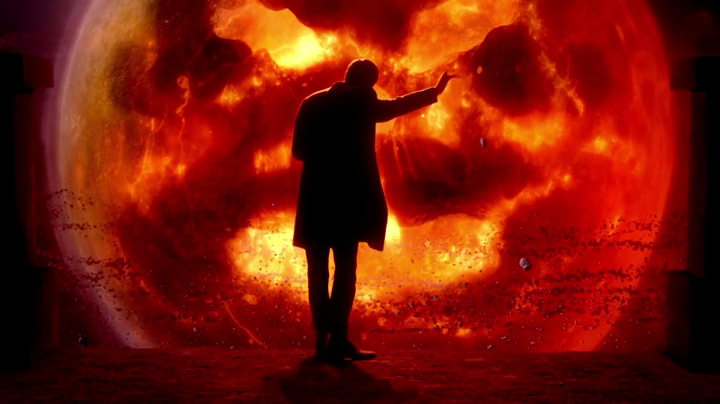Doctor Who Season 7 Episode 7 Review – The Rings of Akhaten

What do The End of the World, The Shakespeare Code, The Fires of Pompeii and The Beast Below all have in common? Well apart from being terrible episodes of Doctor Who, they're also the first adventure for each new companion after deciding to journey with the Doctor in the Tardis.
The ancient alien lures them in to his shiny blue box by promising to show them the wonders of the universe, presenting an infinite amount of places to explore across time and space. Why then is the first voyage between the two always such a damp squib? The Rings of Akhaten sadly continued the tradition with a bog-standard offering full of grand ideas but little story or substance.
Mos Eisley
The Doctor decides to take Clara to a picturesque collection of planets orbiting a gigantic sun, admittedly a better choice than when Christopher Eccleston's incarnation thought showing Rose the destruction of Earth was a good idea.
The dazzling special effects of the shining star soon give way to the clichéd image of the alien marketplace as an exotic bazaar. Did Star Wars really have such an effect on a generation's imagination that all people can think of when it comes to alien planets is as a middle east medina?
This image also becomes dangerously condescending later on when we discover that the planet's inhabitants believe they constantly need to sing in order to appease the sun, who they believe to be an angry God.
Mothering Clara
In this hostile and primitive world the little girl called Merry is in need of protecting. Clara is brought in to show her mothering side towards her, a stifingly unoriginal depiction of the emotional companion to match the Doctor's steely intellectual.
Basic stuff, but this is hardly Clara's fault, as Jenna-Louise Coleman isn't given much to develop her character in this episode. We see her attachment to children based on her mother's early death, and she learns the Doctor cares as well when he says, "We don't walk away".
You're more likely to run from the Vigil. The faceless monsters who hunt Merry are a truly menacing foe and are critically underused in the episode. Same goes for the 'alarm clock' mummy who spends most of the time pressing himself up against the glass box he's trapped in.
Here Comes the Sun
The real star villain (sorry for the pun) is Akhaten itself, the giant sun ominously hovering over the seven planets. Though having this celestial body as the baddie is a nice twist, it does throw up the bizarre situation where the Doctor and Clara are trying to defeat a big ball of gas. There won't be a sight on TV this year more surreal than watching a crowd of aliens choir singing whilst the Doctor madly rants for ten minutes at a pumpkin-faced sun.
His long speech is poignant, talking about the power of memories and potential futures, but by the end it's dressed in so much sentimentality that my television screen started to secrete syrup. Doctor Who is a show that should always be about big ideas, but the problem with this episode was its poor execution.
This was the chance to really establish Clara as the Doctor's new companion, but instead we had a lacklustre story with surprisingly little chemistry between the two. I'm sure it will begin to bubble nicely over the rest of the season, but the 'second episode syndrome' has struck once more and given us a purely filler adventure. The Doctor can shout as loud as he wants about what he has seen and done, this singing spectacular hit all the wrong notes.
Previous Episodes
© Copyright IBTimes 2025. All rights reserved.






















